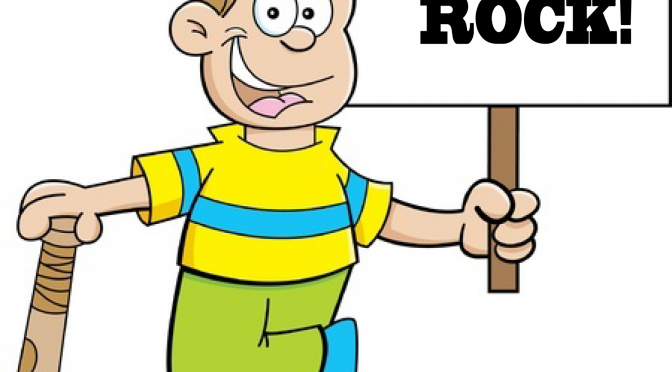Brighten Your Teammates' Day
When you’re playing on a team, the way you interact with your teammates affects your performance as much as it does theirs. On a rough day, when nothing seems right or you’re down in a game, it’s easy to focus on the negatives. The double that was missed because second base held the ball to long, the strike that should have been a ball – whatever it is, you’re looking at your teammates on an off day and they’re getting under your skin. How do you perform when that happens? If you’re anything like most players, you’re probably getting winded when you hustle, missing your mark on your throws, having a hard time tracking, generally feeling like bad is just getting worse.
These are related; harboring feelings of frustration and resentment, even if they’re just fleeting thoughts on an extra hot and sticky day (or gloomy, chilly day, whichever you hate more) will negatively impact your performance. What’s worse, your teammates might be stuck in their own grumpy bubble, feeling the same about you. Being tough and focused in sports isn’t the same as being ticked off at anyone around you.
Make the Brightness
The good news is that the opposite is also true; the more you focus on the positive attributes of your teammates, or the positive in whatever situation you’re in, the better off you’ll all be. Focusing on the positive has profound mental benefits, such as increased focus, reduced stress, and better physical performance, from mechanical tasks, to agility, to cardiovascular endurance. You can be tough, focused and still be positive. In fact, positive thinking is highly linked to what psychologists call mental toughness, a necessary component of the athlete mindset.
Get started in your own dugout today. Try to brighten your teammates’ day and see how your practice or game goes. Improved morale will increase communication, verbally and non-verbally, helping you make those coordinated power-plays. Here’s a few ways you can put the power of positive thinking into practice with your team.
Try a compliment. By this, I don’t mean saying “Hey, bud, nice haircut!”Though, if your teammate does get a nice haircut, complimenting them instead of the usual asking if they got in a fight with a lawnmower might be a good thing to try. Complimenting means recognizing a great effort put forth or an achievement made by a teammate and pointing it out. Make it thoughtful.
Every team member has their own strengths and areas to improve. As their teammate, you should be somewhat aware of what they’re good at and what they’re working on (not just when coach points it out). They have their own program for moving forward and addressing their strengths and weakness to improve their game overall. This is what you should be focusing on. Are they running faster and cleaner in practice? Is that outfielder showing exceptional hustle on defense? Is first base getting better and better at picking the ball out of the dirt? If you see something, say something. Not only will it make them feel better to know that you think they’re doing a good job, if you can compliment them on something you know they are working on, it will make them feel appreciated and recognized. These are powerful feelings for binding members of a team.
A little gratitude goes a long way. Say thanks when someone does something to help you or the team, be it staying on an extra inning or making a good play. If you’re a stronger player and coach pulls someone out to put you on, look them in the eye and thank them for playing. Maybe even recognize a good play they made if you saw something. Be honest (they’ll know if you’re just making stuff up), but it’s okay to get a little creative when it comes to boosting morale.
Non-verbal communication can be just as important as verbal communication. The act of physical touching has profound psychological effects on human beings. Just a friendly high-five, fist-bumps, or especially a nice pat on the back or shoulder sends signals to the brain that you’re safe and you’re among friends.
How you say is as important as what you say. Greeting each teammate in the morning may seem overly sappy (or just good manners, depending on your team), but what’s stopping you from acknowledging every teammate in your own way, with a fist-bump to one, a “what’s up”to another, and a friendly nod to a third. Communicating in consistent ways builds trust and solidarity, which is essential for your team to move and act like a single unit out on the field.
You can be focused, mentally tough, and positive. It’s all about how thoughtful you can be and what your style is. Give it a shot.

